

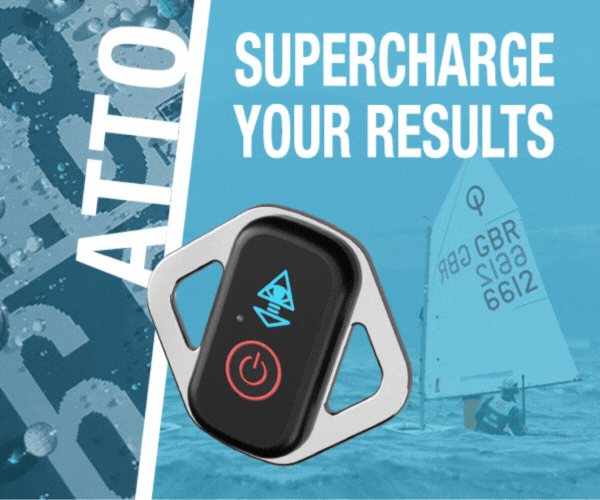
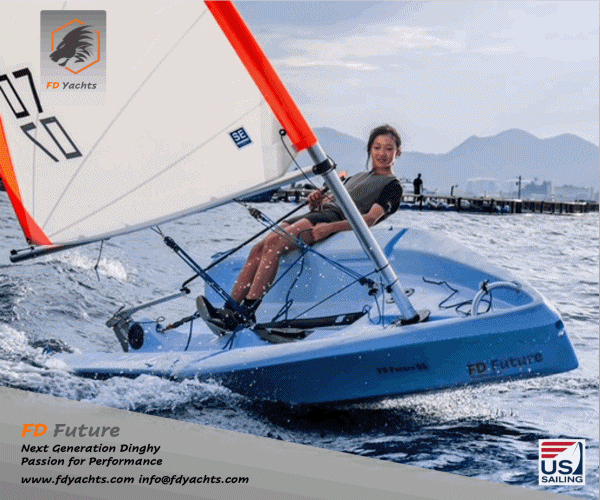






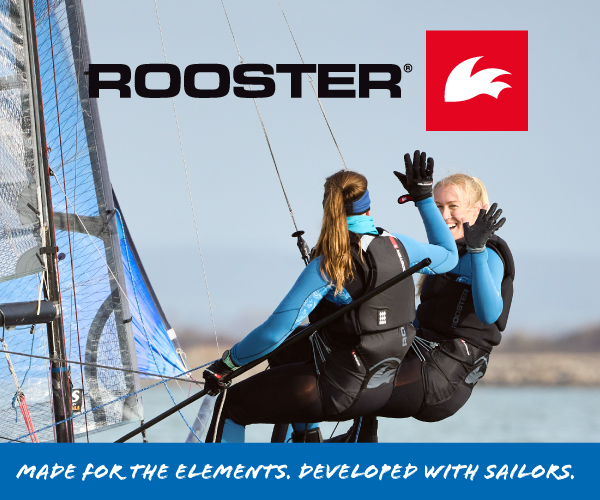

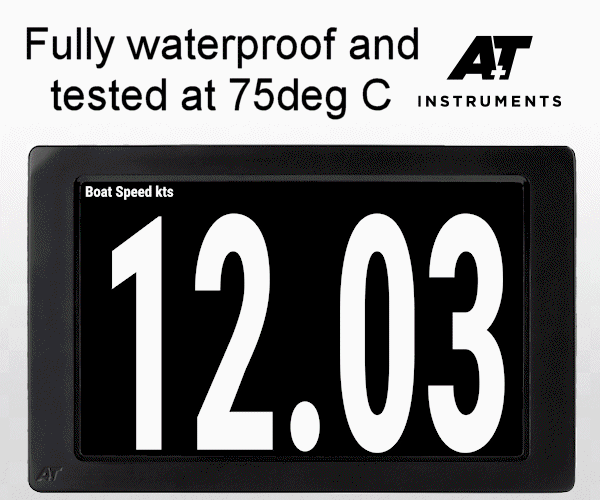
| Laser 28 - Excellent example of this great design Hamble le rice |
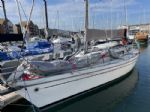 |
| Rossiter Pintail Mortagne sur Gironde, near Bordeaux |
 |
| Laser 140101 Tynemouth |
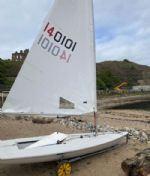 |
List classes of boat for sale |
Technical query |
Post Reply 
|
Page 123> |
| Author | |
tack'ho 
Really should get out more 
Joined: 08 Feb 06 Location: United Kingdom Online Status: Offline Posts: 1100 |
 Post Options Post Options
 Quote Quote  Reply Reply
 Topic: Technical query Topic: Technical queryPosted: 20 Feb 06 at 10:33am |
|
Ok then given two hull forms with the same wetted resitance and the same power and weight we know that the longer of the two will have the highest displacement speed. My question is will the shorter plane earlier if so what are the sort of differences per foot of length. Obviously they will need to be pretty close , within a couple of feet for the wetted resistance to about equal. Further to that how big an effect is a reduction in weight going to make. I'm really just trying to get a rough handle on the comparative effects of each. |
|
|
I might be sailing it, but it's still sh**e!
|
|
 |
|
Chris 249 
Really should get out more 

Joined: 10 May 04 Online Status: Offline Posts: 2041 |
 Post Options Post Options
 Quote Quote  Reply Reply
 Posted: 20 Feb 06 at 11:58am Posted: 20 Feb 06 at 11:58am |
|
Out of interest, do you really want to "plane" early? There's many an
older boat that planes early but goes slower. An old '60s scow Moth
arguably planes earlier than a modern (non foil) skinny Moth, but the
planing boat goes a lot slower. Same with the light Aussie 14s of the
early '90s v a Bieker Int. 14.
Which sort of ignores the other point, which is that some of the best designers say they can't really tell whether a boat is planing or not; or rather they could tell only if someone threw a lot of money and a test tank at them......  Edited by Chris 249 |
|
 |
|
Guest 
Newbie 
Joined: 21 May 04 Location: United Kingdom Online Status: Offline Posts: 0 |
 Post Options Post Options
 Quote Quote  Reply Reply
 Posted: 20 Feb 06 at 12:47pm Posted: 20 Feb 06 at 12:47pm |
|
THat is a good point ... I have often wondered HOW you tell if you are planing up wind ... I think most people sense the sensation of surfing downwind but how do you know when your are plaining - what are the signs? You know if your're going well but I don't ever really notice a step change in performance of any planing class I have sailed. Rick |
|
 |
|
jeffers 
Really should get out more 

Joined: 29 Mar 04 Location: United Kingdom Online Status: Offline Posts: 3048 |
 Post Options Post Options
 Quote Quote  Reply Reply
 Posted: 20 Feb 06 at 12:57pm Posted: 20 Feb 06 at 12:57pm |
|
In the Blaze I managed to (briefly) plane it upwind. You can feel the boat take off but it is on a knife edge (hence why I didn't keep it going long).
Paul |
|
|
Paul
---------------------- D-Zero GBR 74 |
|
 |
|
JimC 
Really should get out more 

Joined: 17 May 04 Location: United Kingdom Online Status: Offline Posts: 6662 |
 Post Options Post Options
 Quote Quote  Reply Reply
 Posted: 20 Feb 06 at 12:59pm Posted: 20 Feb 06 at 12:59pm |
There's nothing very magic about planing at low speeds... You don't stop towing wave systems about, there's not a drop in drag as you go faster, its just that the increase in drag doesn't go through the roof asb it would with a pure displacement type shape. Weight seems to be very significant indeed, because not only does it affect the size of these waves you're dragging about, it also affects how much lift you need from the hull to get the drag reductions. As for how you tell whether you are planing... I don't believe there's any magic point anymore with modern boats, and Bethwaite claims that his boats start reducing displacement with dynmaic lift well below planing speed, but if the stem is meeting the water several inches below where it would be if you were at drifting speed, and the stern isn't digging any bigger a hole in the water then the smart money is you're planing... |
|
 |
|
Chris Noble 
Really should get out more 
Joined: 26 Nov 04 Location: Scotland Online Status: Offline Posts: 710 |
 Post Options Post Options
 Quote Quote  Reply Reply
 Posted: 20 Feb 06 at 4:45pm Posted: 20 Feb 06 at 4:45pm |
|
does anyone know if 300's plane upwind?
|
|
|
Competitive Boat Insurance From Noble Marine
FOR SALE: I14 2 Masts 2 poles 3 Booms, Foils Kites/Mains/Jibs too many to list. |
|
 |
|
ColH 
Far too distracted from work 
Joined: 11 Jan 06 Location: United Kingdom Online Status: Offline Posts: 242 |
 Post Options Post Options
 Quote Quote  Reply Reply
 Posted: 20 Feb 06 at 6:39pm Posted: 20 Feb 06 at 6:39pm |
|
One of my targets for this year Col Edited by ColH |
|
 |
|
redback 
Really should get out more 

Joined: 16 Mar 04 Location: Tunbridge Wells Online Status: Offline Posts: 1502 |
 Post Options Post Options
 Quote Quote  Reply Reply
 Posted: 20 Feb 06 at 9:33pm Posted: 20 Feb 06 at 9:33pm |
|
I agree its a subtle thing in modern boats - they don't have that sudden increase of resistance when they reach a certain speed like some of the older designs and similarly they don't have that sudden release as they overcome it. This is what so impressed me when I went from Scorpions to Lasers. In a Scorpion you can feel it overcome the wavemaking resistance and start planing, in the Laser you can't be quite so sure. The Laser4000 is similar but because it has more power you can do it upwind and you're pretty much always planing off the wind. When you're planing you are leaving the stern wave behind and the boat is partly supported by the bow wave. So in my book a sure fire indication is the forefoot of the bow rarely in the water but another indication is how far back is the stern wave. Dinghies with their truncated lines at the stern ie cut off at transom, normally leave their stern wave about 10-30cm behind them, but when you start planing that increases and the faster you go the further behind you leave it.
|
|
 |
|
Chris 249 
Really should get out more 

Joined: 10 May 04 Online Status: Offline Posts: 2041 |
 Post Options Post Options
 Quote Quote  Reply Reply
 Posted: 20 Feb 06 at 9:37pm Posted: 20 Feb 06 at 9:37pm |
|
Julian Bethwaite said last week that even he can't really tell when a
boat actually starts to plane upwind; as Rick says, in most performance
boats the drag curve is so flat that there's no real moment when you go
"whoooo, we're off!".
Come to think of it, even something as basically crude as the original Windsurfer doesn't have much of a hump upwind IIRC; much less of a hump than a shorter modern board. The fact that it's 12' long but about 2' wide and only about 28kg surely has a lot to do with that. One thing that underlines to me how planing is not a key to speed and not always easy to spot is sailing "sinker" windsurfers. You can be actually planing while still up to your boardshorts in water and getting passed by Optis. It's a long time after that, and even sometimes long after the boards has surfaced, that the drag and lift/drag or whatever forces start to operate and suddenly the board goes woooooosh and starts to feel like it's "planing". |
|
 |
|
Blobby 
Really should get out more 
Joined: 07 May 04 Location: Australia Online Status: Offline Posts: 779 |
 Post Options Post Options
 Quote Quote  Reply Reply
 Posted: 21 Feb 06 at 12:41am Posted: 21 Feb 06 at 12:41am |
Fundamentals rather than a philosophical discussion on the merits of planing... 1) Yes the shorter boat will plane at a lower speed if you define planing as exceeding hull speed. It has to because it is shorter. 2) At what point is the wetted resistance equal? All the way from rest to terminal velocity? in which case it doesn't matter which planes first, they both have the same power and the same resistance so they will go at the same speed... 3) 20% reduction in weight in a 12ft dinghy seems to give about 20% reduction in drag in theory...how good the theory is is up for grabs. |
|
 |
|
Post Reply 
|
Page 123> |
| Forum Jump | Forum Permissions  You cannot post new topics in this forum You cannot reply to topics in this forum You cannot delete your posts in this forum You cannot edit your posts in this forum You cannot create polls in this forum You cannot vote in polls in this forum |
Copyright ©2001-2010 Web Wiz
Change your personal settings, or read our privacy policy











 Printable Version
Printable Version Delicious
Delicious Digg
Digg Facebook
Facebook Furl
Furl Google
Google MySpace
MySpace Newsvine
Newsvine reddit
reddit StumbleUpon
StumbleUpon Twitter
Twitter Windows Live
Windows Live Yahoo Bookmarks
Yahoo Bookmarks Topic Options
Topic Options . Sounds like its a bit tricky though!
. Sounds like its a bit tricky though!